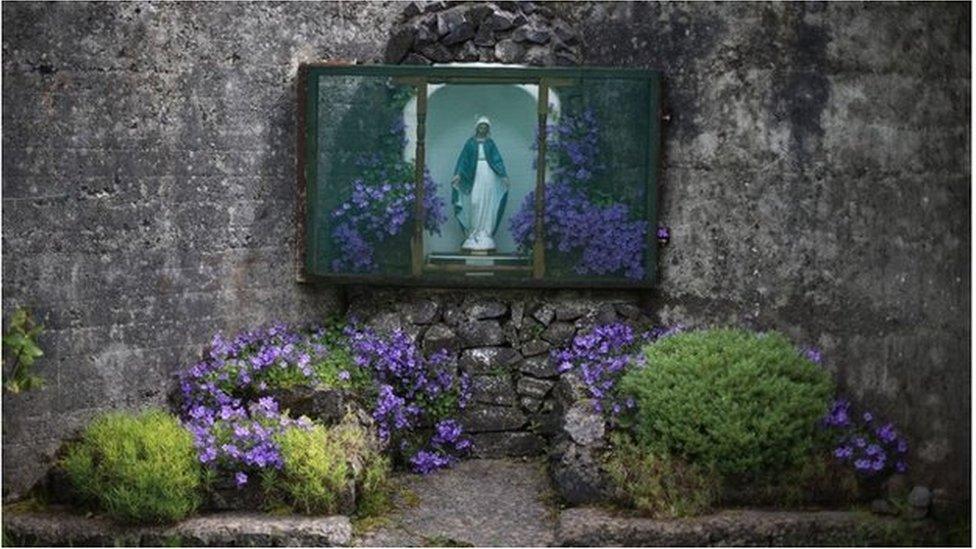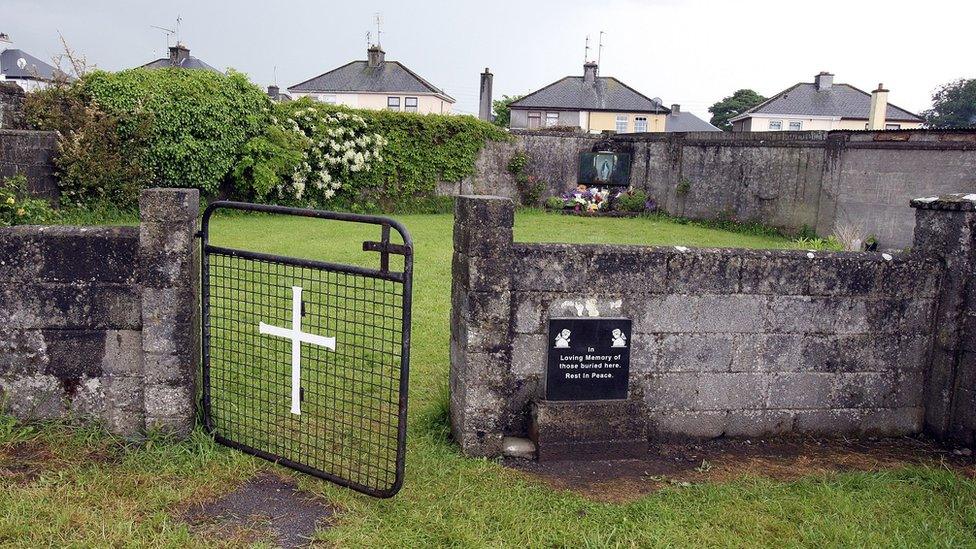Mother and baby homes controversy 'has not gone away'
- Published

The plight of the mothers and their children became an international news story after the discovery of "significant human remains" on the grounds of a former home in Tuam
The controversial Mother and Baby homes bill may have been signed into Irish law by the country's president Michael D Higgins but the debate around it hasn't gone away.
There remains plenty of friction over whether those seeking information about themselves will have to wait 30 years until their records are unsealed .
Such homes were established in the 19th and 20th centuries to house women and girls who became pregnant outside of marriage.
Their children more often than not adopted or spent time in orphanages.
It is a both a confused and confusing issue.
At its heart are sometimes conflicting rights - including privacy, governed by different pieces of legislation, with worries about General Data Protection Regulation (GDPR) thrown in for extra measure.
The Mother and Baby Homes Commission, which is due to issue its final report on Friday, was set up under the 2004 Commission of Investigations Act, which says that records must be kept under wraps for 30 years.
Part of the thinking behind this act was to cut costs and allow those giving evidence to a commission to do so without challenge and without legal representation.
Their evidence, often given in private and confidentially, was simply listened to.
Now that the Mother and Baby Homes bill is law, the estimated 60,000 digitalised files on the database of the commission, largely gathered from the records of Mother and Baby Homes over its five-year investigation, will be handed over to the National Archive and the child and family agency Tusla.
But campaigners and some of those seeking more information about their own life story, including their natural mother and their adoption, believe that sealing the records will deny them an opportunity to find out more about themselves and their history.
Ministers have repeated that it was never their intention to allow a dark period of Irish history to continue to be swept under the carpet or to deny people their rights.
They believe that with cross-party parliamentary support it should be possible very quickly to allay the concerns of those affected.
But those seeking their records are far from convinced and this is an issue that may well still end up in the courts.
- Published26 October 2020
